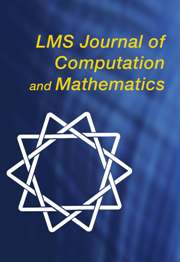Crossref Citations
This article has been cited by the following publications. This list is generated based on data provided by Crossref.
Smith, Kevin
2011.
On the completeness of sets of complex exponentials.
LMS Journal of Computation and Mathematics,
Vol. 14,
Issue. ,
p.
137.

